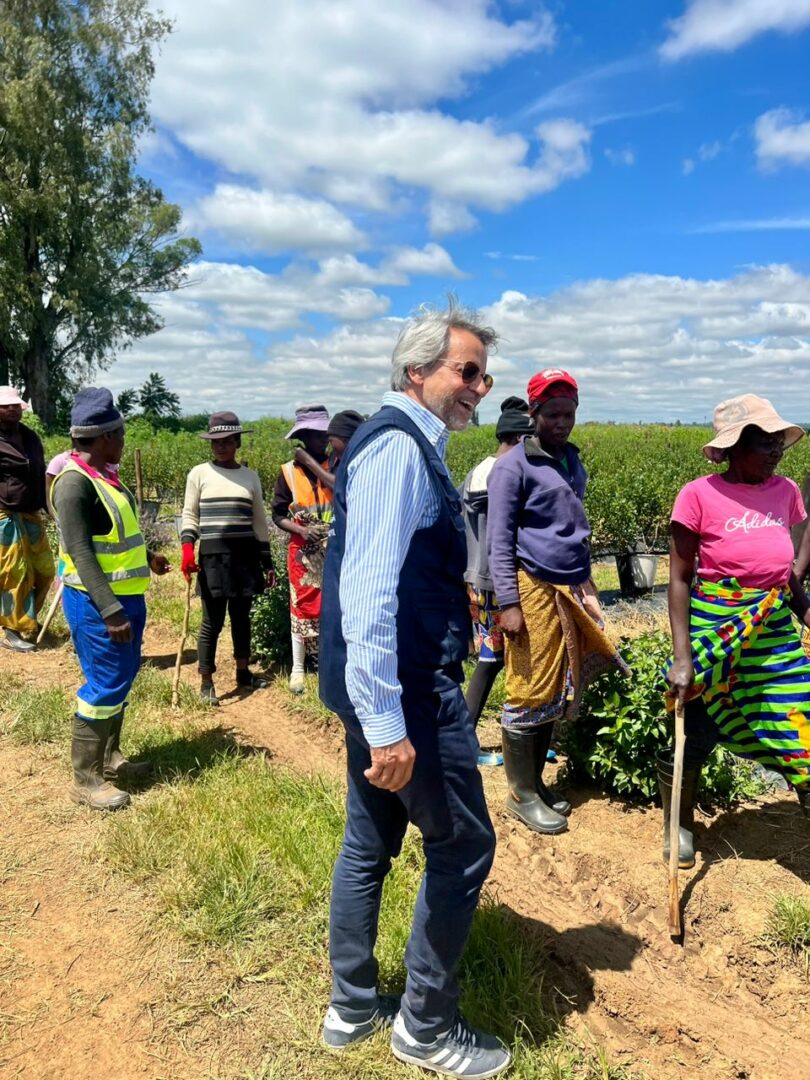|
Getting your Trinity Audio player ready…
|
The European Investment Bank (EIB)’s EUR 40 million loan facility for Zimbabwe introduced last year as a pilot project, has emerged as a masterstroke to revive the agricultural sector.
Speaking to Spiked Online Media last week, HE Jobst von Kirchmann, the Ambassador of the European Union to Zimbabwe said the EIB is the EU’s lending arm and the biggest bank in the world. For Zimbabwe, the EIB decided to avail a programme for Zimbabwe after realising the need to revive the private sector in particular in agriculture, the mainstay of the country’s economy.
“In 2022, the EIB introduced a 40 million Euro private sector facility as a pilot fund. The fund was targeting value addition in the agricultural sector, particularly in horticulture. The companies in the agricultural value chain were thirsty for mid-term funding. The EIB provides favourable interest rates between 7% and 9 % payable over a long period of time of up to eight years, through three local banks: NMB, First Capital and CABS. The fact that the loan scheme was exhausted after only one year demonstrates the huge interest of farmers,” Ambassador von Kirchmann said.
The Ambassador revealed that the EU supports policy advocacy that promotes agricultural productivity and viability. It also works to stimulate investment in agriculture.
Mr Liam Philp, the Vice Chairman of the Horticultural Development Council who is also a director of African Preserves that specializes in the production and processing of cherry papers to Germany said the EIB provides favourable mid-term financing conducive for farmers.
“The EIB fund is very conducive for farmers. Unlike most local banks that demand loan repayment in just 12 to 24 months in a development that makes it difficult for farmers to pay back the loans on time, the EIB funds are flexible and give the farmers an opportunity to recoup their profits and be able to pay back the loans,” Mr Philp said.
Selby Enterprises’ Farming division called Koman Integrated Agriculture produces blueberries for the European market. Zimbabwe has had preferential trade access to the market of the 27 countries of the European Union in a duty-free and quota-free manner since May 2012.
“Demand for such products in Europe is high but the problem we have is funding. We also support the viability of the most promising agricultural value chains for the country,” Mr Philp said.
Beneficiaries of EIB loans direct the funding into value-addition processes. The funds are channelled into working capital. Some of the money is also deployed to support the farmers in their businesses.
Ambassador von Kirchmann finally stated, that the EU just launched together with the EIB and the EU Member States a “Team Europe” initiative for Zimbabwe, which mobilises 207 million euros until 2027 to support the government efforts of making agriculture greener and climate-smart.
It also aims in supporting specific agricultural value chains with a view to increasing exports under the Economic Partnership agreement. The ambassador’s visit to Selby Enterprises helped him better understand the challenges of horticulture value chains.
